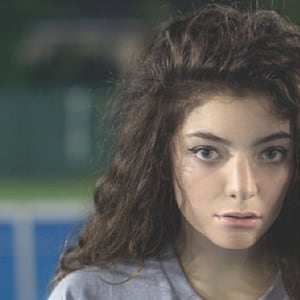At 16, Ella Yelich-O’Connor became pop music’s lord(e) and savior with her debut single “Royals.” Eight years later, she’s kept her stage name. But as her new record Solar Power warns, “if you’re looking for a savior,” it is no longer her.
Does pop music still need saving? It’s a question Lorde poses throughout the record, often more vocally than her stated theme of celebrating the natural world. In “The Path,” she notes how people should consult the sun as their therapist instead of her. And in “California,” her fame is her antagonist, creeping on her neck as she refuses “that California love.” She calls for a “leader of a new regime” while she escapes with her “SPF 3000” and designer outfits to an undisclosed island.
It’s a casual abdication that pairs ironically with her regal stage name. And it belies her preoccupation with her own legacy, the frequent subject of many lyrics and essays.
The minimalism of her debut album Pure Heroine gave pop music a facelift. Her emotionally specific lyrics and off-kilter production helped tilt the genre away from the brash loudness of then-popular chart-toppers like Macklemore’s “Can’t Hold Us” and Katy Perry’s “Roar.” Songs like “Royals” and fan-favorite “Ribs” helped shape Lorde’s persona as an artist who flips the script on pop and what it means to be a pop artist.
Her follow-up album, 2017’s Melodrama, leaned into that image, with what prolific pop producer Max Martin allegedly called “incorrect songwriting” and a kaleidoscope of strange sounds (a tiger’s roar in “Sober!” Paul Simon’s voice sampled in “Loveless!”). It was unabashedly pop. Where her first album critiqued society’s obsession with gold teeth and Grey Goose, she centered her second around a bombastic party to talk about her broken heart.
Even at the young age of 24, Lorde has created a legacy, audible in the work of the pop stars who have followed in her footsteps. Billie Eilish’s debut single “Ocean Eyes” felt at times like an extension of Pure Heroine’s moodiness, as did the production of her 2019 album When We All Fall Asleep, Where Do We Go? Olivia Rodrigo and Conan Gray's lyrics and vocals also draw directly from The Great Lorde Songbook. (Rodrigo acknowledges the influence. “I felt like a changed person,” Rodrigo told MTV after seeing Lorde’s Melodrama Tour. “I remember being like, ‘I wanna make art like that. I wanna make art like Lorde.’”)
Lorde has pondered her own legacy from the start. The Pure Heroine track “Still Sane” declares that “only bad people live to see their likeness set in stone” and wonders where she may eventually fall on that scale. Her Melodrama ballad “Writer in the Dark” notes the personal tragedy of her fame (her ex-lover hates it, so she shrivels away from it). She’s even called for Solar Power to be a “work that will last 10, 20, 30 years”—a bold claim to make.
It makes one wonder if, in her effort to “pivot,” as she told the Irish Times, she deliberately chose to pull Solar Power back in time, harkening to the past to prevent the world from following her into the future.
Much of Solar Power feels as if the auras of the Mamas and the Papas, Natalie Imbruglia, and the Beach Boys channeled themselves to Lorde through the sun. It swaps Melodrama’s piano-anchored production for Jack Antonoff’s acoustic guitar; he plays almost every instrument on every song, with star producer Malay and drummer Matt Chamberlain sprinkled throughout. Sonically, it merges Woodstock and early-2000s pop charts with ease.
“Fallen Fruit” embarks on a bass-driven, dreamlike sweep through the clouds as its lyrics spin a hopeful-yet-desperate outlook on the climate crisis. The Robyn-assisted “Secrets From a Girl (Who’s Seen It All)” feels straight out of 2005, a standout track that features Lorde on a trip aboard “Strange Airlines” to promote self-positivity. Lorde manages to sum it all up in the six-minute-plus “Oceanic Feeling,” a track that, while slightly overlong, still believably conjoins the album’s themes of summer, life, and the world as she retreats to her New Zealand home.
The album is of a piece with a resurgence this year in acoustic-driven tunes, spearheaded by Clairo and St. Vincent (with their albums Sling and Daddy’s Home, respectively, both produced by Antonoff). But it’s difficult to see where Lorde will pivot next or who will be responsible for pop music’s next shift. The Billboard Hot 100 is currently an amalgamation of different genres, with Rodrigo’s pop-rock anthem “good 4 u” seated near The Weeknd’s synth-based “Take My Breath” and BTS’s bubbly “Butter.”
Still, wherever she ventures next, Solar Power highlights one ever-present truth: Whether she is a willing savior or not, she will always be—self-consciously so—Lorde.







